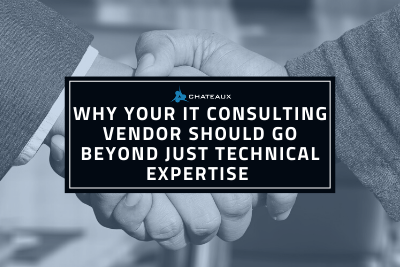In the last post of our Breaking the Barriers series, we discussed a corporate culture based on silos, the top barrier to coordinating data management according to a TDWI survey published in the Business Intelligence Journal. In the next installment of our Breaking the Barriers series, Hugo Toledo discusses the second most common barrier: data ownership and other politics.
By Hugo Toledo, Senior BI Architect
In order to implement data management, many organizations must overcome the obstacles created by data ownership and related politics. Problems arise when the data owners differ from the data users, causing modifications to be made to the data that inadvertently impact the data’s content, meaning, or function.
For instance, a marketing department collects customer data that may be useful for sales. When extracting the data to the sales department, IT standardizes and cleanses it, unknowingly deleting or changing vital information. Common catalysts for this type of situation include terminology variations for the same set of data; address formatting discrepancies; and occasions where data may seem incorrect or useless to the third-party, but actually serves a vital purpose.
Just because a user has access to certain data and works with it on a regular basis does not necessarily mean they own the data. Similarly, data owners may not hold much authority over the data; if they are not a major decision maker within the organization, they may not have any say over what happens with the data. Thus, the ultimate data owners in an organization are the high-level management with decision-making power. This relationship between the data users, data owners, and actual owners/decision makers is not always straightforward or transparent and can generate a lot of company politics.
Part of the problem lies with the term “owner”. This term implies a complete authority to dispense with data in any way the owner sees fit. In fact, the company ”owns”the data, and there are a whole set of responsibilities that may be subdivided and assigned to a variety people concerning the data. Searching for single “owners” of data among individuals who each have limited responsibility and authority causes great trepidation. There are also sets of data that a company may hold, but in fact has very limited authority over and does not ”own.”
Breaking the Barrier
In order to combat this issue, you should first determine the best way for your organization to deal with data ownership and politics and then build a case for data management.
Every organization will have a different solution for this issue; however, there are a few helpful guidelines that all businesses should follow when initially implementing data management.
- It is best not to throw out an existing business unit’s data. Instead, you should extend the organization’s knowledge by identifying possible duplicates and errors and improving data completeness, e.g. adding the missing “+4” to the zip code
- Always ensure that those relying on the data–those who provided you the data in the first place–have had a chance to explain why their data may need to stay as it is. For example, you may hear something like this: “The essential but very old software we rely on crashes if the “+4” is included in the zip code.” Or, “Employees have no other place to put that information so the second address line always has a special set of codes we use to filter customers.”
- Strive to eliminate all duplication and errors
- Recognize that there may be partial “owners” of some data
Choosing Your Battles
In deciding which issues are worth solving and which are not, don’t waste time on any changes that cannot clearly be shown to improve quality, lower costs, or increase profits. It is better to hide unreliable information than to remove it from places where the business unit neither wants the enhanced data nor wants it removed. One example would be to replace existing coding schemes with ones that cover multiple business units whose activities are never or not usefully viewed in aggregate.
Benefits
Overcoming the impediments created by data ownership will not only minimize politics and improve the way data users interact, but it will also improve the power of the data. While there are countless benefits to overcoming this barrier, a few key benefits include:
- Clear identification of your actual customers
- The ability to better analyze your customers’ interactions with your organization
- The ability to reliably segment your customers by common attributes including satisfaction, location, activity levels, costs, profitability and changes to these and other measures
Organizations that tackle data management in a thoughtful and deliberate way are finding that the benefits far outweigh the political difficulties. Allowing data to be organized and easily interpreted across all divisions makes for a stronger company, overall. To learn more about data management, contact the BI Answer Man.









